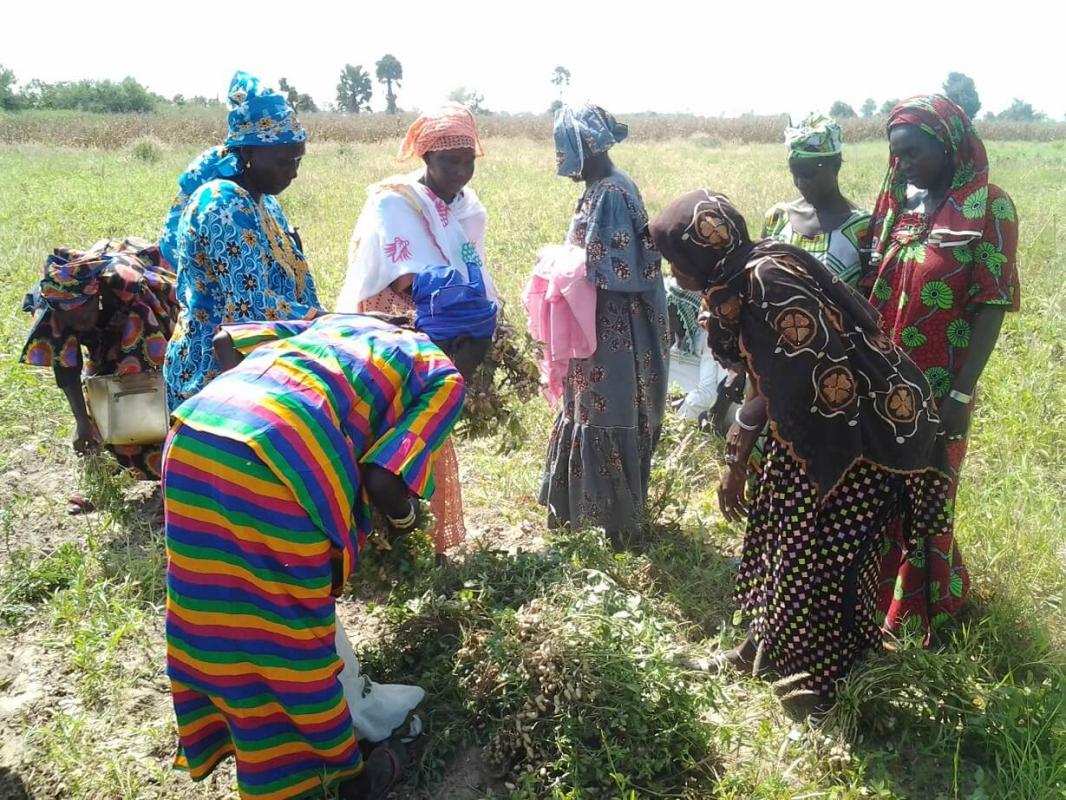- Home
- Worldwide
- CIRAD worldwide
- Projects
- ABEE project
West Africa Breeding Networks and Extension Empowerment - ABEE

Groundnut producers from the Fatick region (Senegal) visiting demonstration plots of new varieties © Hodo-Abalo Tossim
Issues
The agricultural sector in West Africa represents 35% of gross domestic product (GDP) and employs some 60% of the working population. There are several factors that hamper its productivity, and it is one of the least productive worldwide. Access to affordable, quality seed and fertilizers is difficult, and there are currently few links between the research sector, farmers and markets. There is still little information on new farming technology and good cropping practices. To compound matters, the region suffers from rising temperatures, variable rainfall year on year, and increasingly frequent, devastating extreme weather phenomena. Access to improved varieties tailored to local demand, and to inputs and efficient distribution channels would make smallholders in the Sahel more resilient. Modern breeding practices are thus required to develop resilient varieties that are high-yielding and nutritious and suited to the local environment and market requirements.
Description
The project aims to coordinate varietal breeding operations on a national and regional level. A database will serve as a source of information for breeding programmes. The existing breeder networks, which are at the core of research operations, will be strengthened to facilitate genetic material exchanges. With strong support from international partners, breeders will be encouraged to modernize their breeding practices by installing and using equipment and methods that are as yet little used in Africa: digitization, molecular genetics and IT development plans (internet connectivity, servers, computer equipment), etc.
The main experimental stations used by breeding programmes in Burkina Faso, Niger and Senegal will benefit from new investment. The varieties developed will be tailored to West African smallholders' need for resilient crops.
The project will also enable farmers to identify worthwhile products and market demand. The private sector will be involved, notably to forecast requirements in terms of the range and type of varieties to satisfy demand. Participatory assessments and regular surveys of producers and markets will provide breeders with vital information to align user expectations with research outcomes.
Finally, capacity building among researchers in national systems and training for future generations of breeders and scientists will deliver lasting results after the end of the project.
Expected impacts
- Access for smallholders to resistant, high-yielding varieties, making them more resilient to global change (population growth, economic vulnerability and climate change).
- Long-term improvements in agricultural productivity.
- Improved food and nutrition security for households and families.
CORAF/WECARD (coordinator), AfricaRice/Integrated Breeding Platform (IBP), Institut de Recherches Agricoles du Sénégal/Centre d’études régionales pour l’amélioration de l’adaptation à la sécheresse (ISRA/CERAAS), Institut de l’Environnement et de Recherches Agricoles, Burkina Faso (INERA), Institut National de Recherche Agronomique du Niger (INRAN).























